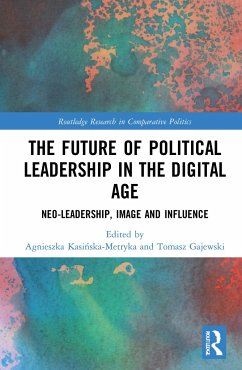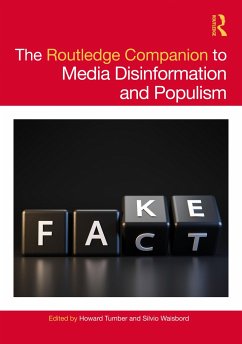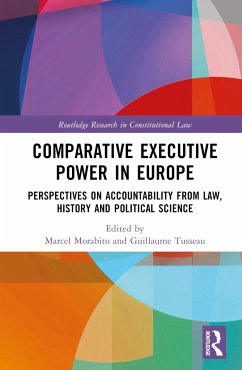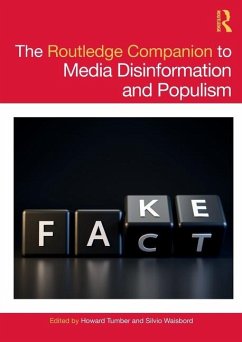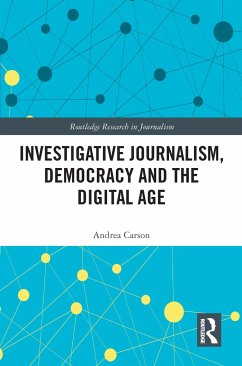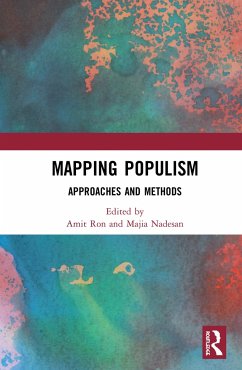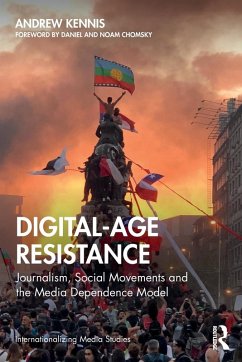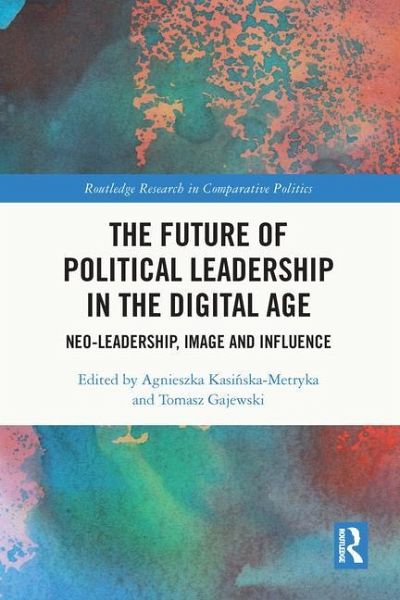
The Future of Political Leadership in the Digital Age
Neo-Leadership, Image and Influence
Herausgegeben: Kasinska-Metryka, Agnieszka; Gajewski, Tomasz
Versandkostenfrei!
Versandfertig in 6-10 Tagen
43,99 €
inkl. MwSt.
Weitere Ausgaben:

PAYBACK Punkte
22 °P sammeln!
This book comprehensively describes the impact of modern technologies on political leadership by providing a new paradigm of the phenomenon of neo-leadership, that is political leadership oriented on creating both the image and political influence on the Internet.It examines its functioning in the new media environment and identifies the most important transforming trends, taking into account their impact on political and social relations in an era of dynamic technological development. Systematically exploring various dimensions of leadership, it presents new notions relevant in a networked wo...
This book comprehensively describes the impact of modern technologies on political leadership by providing a new paradigm of the phenomenon of neo-leadership, that is political leadership oriented on creating both the image and political influence on the Internet.
It examines its functioning in the new media environment and identifies the most important transforming trends, taking into account their impact on political and social relations in an era of dynamic technological development. Systematically exploring various dimensions of leadership, it presents new notions relevant in a networked world where leaders are created and conduct themselves against the backdrop of a technological revolution, including the development of AI, automation, algorithms and ultrafast networks, all of which strengthen or disrupt their impact and create a new set of virtual authorities exerting an increasing impact on society, ethical considerations and political life and requiring new methods for study.
This book will be of key interest to scholars, students and practitioners of leadership and elite studies, media and communication studies, political marketing, political science, international relations; public policy, and sociology.
It examines its functioning in the new media environment and identifies the most important transforming trends, taking into account their impact on political and social relations in an era of dynamic technological development. Systematically exploring various dimensions of leadership, it presents new notions relevant in a networked world where leaders are created and conduct themselves against the backdrop of a technological revolution, including the development of AI, automation, algorithms and ultrafast networks, all of which strengthen or disrupt their impact and create a new set of virtual authorities exerting an increasing impact on society, ethical considerations and political life and requiring new methods for study.
This book will be of key interest to scholars, students and practitioners of leadership and elite studies, media and communication studies, political marketing, political science, international relations; public policy, and sociology.





